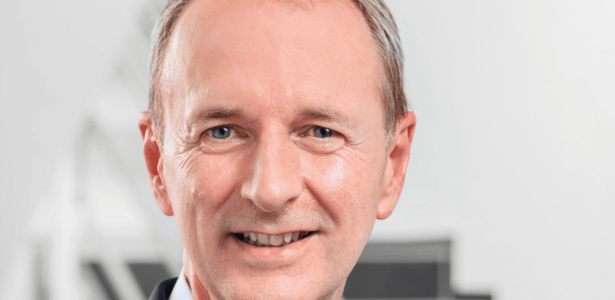In view of the current situation of the automotive industry, we all went to EMO 2019 with mixed feelings. How would you sum up halftime?
German Wankmiller: Generally, EMO is characterized by the impressions that were already known before the trade fair, mostly from the IAA in Frankfurt. They all have significant influence on the capital goods industry and thus on our company as well. All exhibitors at the fair are expecting the drive conversion to more hybrid and electric cars, i. e. less combustion engines, and are looking for new business areas. In principle, it is about the question regarding the grade of utilization of the companies. This is a question that will surely be asked for the next two years.
With regards to our activities at the trade fair, at halftime, I can say that the course of the fair looks good in comparison to 2017. In the reference figures that are important to us, "Customer conversations", "Offers" and "Sales", we are above the figures from 2017. A result that shows that we were successful in positioning our company outside of the automotive industry in spite of the difficult frame conditions. To sum up, it's going better than expected.
Everyone talks about the topic of "electromobility". Is there any new information for you at this fair?
Our direct competitors in conventional machining, such as MAG, Heller, Hermle or SW do not deal with electromobility. They don't have any concepts like GROB, since the entrance into electromobility requires large development expenses and a lot of technical know-how. This step was simpler for us, since we had prior knowledge from assembly technology. Our competitors are looking for conventional machining of alternative components outside of the automotive industry.
Almost all German mechanical engineers of the automotive industry grew up with conventional machining. How hard is the step from conventional machining to developing electric motors?
The technology is a huge challenge. Conventional machining of aluminum and steel parts is very challenging due to complex NC programs and elaborate clamping fixtures and part-related machining processes. In E-mobility, thin, round or delicate square wires have to be formed. This is a completely different world of kinematics for machines, the software and the complete process. In conclusion, it is a big step into a completely different production world.
In the German media, the combustion motor is given no chance for the near future, contrary to the public opinion. What is your opinion on this topic?
The combustion motor is currently still the backbone of all fleet and auto manufacturers, with which they make their money, which at this time is hardly possible with the new drives. At the same time, the combustion motor can be optimized further. Generally, it is expected that the combustion motor will be developed further and optimized by ca. 2030. First, we have to take a look at the next two months and see what happens.
Electromobility has developed into a real hype in Germany in the past few months. What tendencies do you see in other markets globally?
In Europe, Germany is for sure the driving force of these new technologies for environmental friendliness. At best, the manufacturers can manufacture vehicles that do not emit any CO2. Where the electricity for that comes from is another question. Other driving forces are China and Japan in Asia. At the same time, hybrid drive is the favorite in these countries. In general, a market share of 20 percent is expected for vehicles with alternative drives in the next seven years. Electric drive currently does not play a large role in America.
How do you see the competition in the electromobility context?
There are indeed many competitors, mostly in Germany, Japan and Italy; countries that have always had a successful mechanical engineering industry. These are mostly companies that have not supplied large plants with delivery regulations for the automotive industry. Regarding capacity and service, we are certainly much better equipped.
Back to our core business, conventional machining: everybody is talking about the automotive industry, which development do you see in other markets, such as Aerospace, medical technology, as well as mould and mechanical engineering? How do you assess these potentials?
We have continued to develop our G-modules in order to be able to better serve these market segments, too. With success, as great jobs confirm. We were able to significantly enhance our portfolio of parts and continuously expand in conventional machining.
How do you generally assess the state of mechanical engineering, and is the automotive industry really in a crisis?
We are observing a certain global economic downturn with according effects on the automotive industry. In addition, there are ambitious legal goals for CO2 reductions. But the necessary infrastructures for the new types of drive are partially missing. With this background, the customers' trust to invest in vehicles with alternative types of drive is decreasing. Trade conflicts additionally reinforce the stagnation in automotive development. We assume that we will face at least another two difficult years for the changes in the automotive industry.
In conclusion, I can say that GROB has made the right steps in the right direction in time, and has invested in new machines and installations, and is now able to deliver. But even we have to make many more adjustments for the big change that lies ahead of us. Our customers confirm time and again that we are on the right track. However, we can't influence the general frame conditions set by the economy and politics.
Thank you for this conversation!

